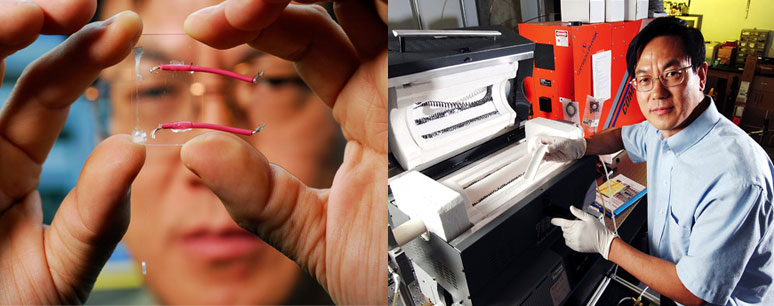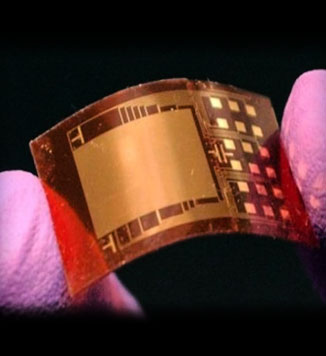SUNGKYUNKWAN UNIVERSITY (SKKU), SEOUL, KOREA


Sungkyunkwan University (SKKU) hosted a special lecture by Prof. Zhong Lin Wang (School of Materials Science and Engineering, Georgia Institute of Technology, Atlanta USA), titled "Nanogenerators and piezotronics-from basic science to novel technological applications" at the SKKU Natural Sciences Campus on December 17th.

In the lecture, prof. Wang stressed that developing wireless nanodevices and nanosys-tems is of critical importance for sensing, medical science, environmental/infrastructure monitoring, defense technology and even personal electronics. It is highly desirable for wireless devices to be self-powered without using battery. Nanogenerators (NGs) have been developed based on piezoelectric, trioboelec-tric and pyroelectric effect, aiming at building self-sufficient power sources for mico/nano-systems. The output of the nanogenerators now is high enough to drive a wireless sensor system and charge a battery for a cell phone, and they are becoming a vital technology for sustainable, independent and maintenance free operation of micro/nano-systems and mobile/ portable electronics.
For Wurtzite and zinc blend structures that have non-central symmetry, such as ZnO, GaN and InN, a piezoelectric potential (piezopotential) is created in the crystal by applying a strain. Such piezopotential can serve as a "gate" voltage that can effectively tune/control the charge transport across an interface/junction; electronics fabricated based on such a mechanism is coined as piezotronics, with applications in force/pressure triggered/controlled electronic devices, sensors, logic units and memory. By using the piezotronic effect, we show that the optoelectronc devices fabricated using wurtzite materials can have superior performance as solar cell, photon detector and light emitting diode. Piezotronics is likely to serve as a "mechanosensation" for directly interfacing biomechanical action with silicon based technology and active flexible electronics.
Details can be found at: http://www.nanoscience.gatech.edu























